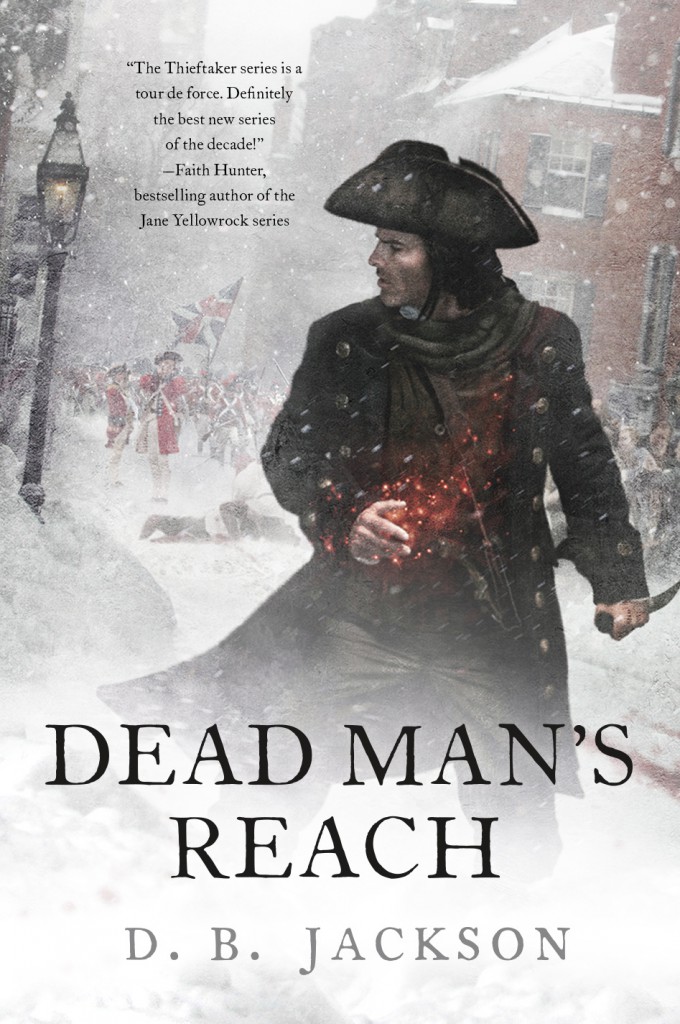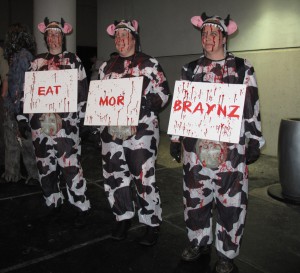Today’s installment on the 2015 Summer-of-Two-Releases Virtual Tour finds me at the Fantasy Book Critic blog site. My post compares and contrasts the approach I took in the two novels I have coming out over the next few weeks — Dead Man’s Reach (as D.B. Jackson) and His Father’s Eyes (as David B. Coe). It’s a post about character, point of view, and narrative — you know, writer stuff. You can find it here. I hope you enjoy it.
Tag Archives: writing life
The Virtual Tour Begins!!
Today, I begin my 2015 Summer-of-Two-Releases Virtual Tour, with a post at the Magical Words blog site. Dead Man’s Reach, the fourth and final volume of the Thieftaker Chronicles, will be released in nineteen days, on July 21. His Father’s Eyes, the second book in The Case Files of Justice Fearsson, drops two weeks after that, on August 4. This first post is about how different books fit into a series (or two . . .) in different ways. You can find the post here. I hope you enjoy it.
The Blog Tour!
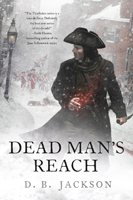
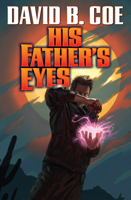 Yes, it’s that time of year again, when I start showing up at other people’s websites, talking about myself and my work. Also known as the blog tour! This year’s 2015 Summer of Two Releases Tour will begin later this week with a post at Magical Words, which is, in many ways, my “home” site. Over the next two months I’ll be visiting lots of sites — probably twenty or more, before all is said and done — and putting up more than thirty posts. The full schedule can be found here, and will be updated as needed. Hope to “see” lots of you along the way.
Yes, it’s that time of year again, when I start showing up at other people’s websites, talking about myself and my work. Also known as the blog tour! This year’s 2015 Summer of Two Releases Tour will begin later this week with a post at Magical Words, which is, in many ways, my “home” site. Over the next two months I’ll be visiting lots of sites — probably twenty or more, before all is said and done — and putting up more than thirty posts. The full schedule can be found here, and will be updated as needed. Hope to “see” lots of you along the way.
Today I am Interviewed by Diana Pharaoh Francis
I have a new interview up — my good friend Diana Pharaoh Francis, a wonderful writer in her own right, asked me some questions about writing Spell Blind, the first book in my new series, the Case Files of Justis Fearsson.
A Better Day
First off, my deepest thanks to all who left comments of support and encouragement and advice in response to yesterday’s post. Your words helped. Your good wishes helped. I knew already that I was not alone in feeling those things; the universality of those struggles I cataloged was one of the reasons I wrote the post in the first place. But hearing from so many of you that you understood from personal experience what I was going through, made it just a little easier. So again, thank you all.
And I’m happy to say that today was easier. There was no bursting of the dam, no comprehensive epiphany, but I didn’t expect either. Figuring out this new project is going to take some time. Today I made progress on my worldbuilding and some character work. I have something I can point at and say, “I did that today. I’m closer to where I want to be.” And tomorrow, I’ll get closer still.
Feeling better.
Don’t, Don’t, Don’t
I’ve debated back and forth about writing this post. Even now, as I type it out, I’m not sure I’ll ever actually put it up. Honesty wars with pride. Fear of revealing weakness and saying “the wrong thing” strives against the notion that reading this post might help others struggling with similar demons.
This has been another of those days — I seem to be having quite a few of them right now. By “those days,” I mean the ones that are filled with doubts and frustrations, stretches of idle time during which I do nothing but stare at a blank screen, getting nothing done and feeling like a lump.
But worse, I find myself falling into all sorts of old, bad habits, things that I have posted about, glibly telling aspiring writers “don’t do this and don’t do that.” And now here I sit, guilty of all the sins at which I’ve railed.
“Success,” I have said in recent posts, “must by self-defined. Don’t look to others for affirmation, find it within yourself.” But I feel myself surrounded my mirrors, as if I have stepped into an erroneously named funhouse. These mirrors are distorted, farcical. And yet I look at myself as I appear in them, and I wonder, “Is that really me?”
“Be ambitious! Ambition is good!” But my ambitions mock me, daring me to reach for them again, to risk falling short of them. Again.
“Don’t write to the market. The market is a moving target. Write what you love, the story that is burning inside of you.” But that story feels elusive right now, and I am constantly second-guessing myself, wondering if I am on the verge of writing the “wrong” story, the one that won’t take my career where I want it to go.
“Don’t read your own reviews.” “Don’t obsess over your numbers.” “Don’t lose sight of the fact that to succeed in this crazy business one must understand that its ultimate reward is love of the craft and passion for the act of creation.”
Don’t, don’t, don’t.
And yet, I do it all.
Because as much as I love this business, as fortunate as I am to be a professional writer, I’m always mindful of the precarious nature of success, however it is defined. I am flying without a net, unsure of what I am going to write next and where I might sell it when it’s ready to hit the market. And that uncertainty terrifies me. I have ideas, but they have yet to coalesce into a vision for a new project.
A voice in my head says, “But they will, they always do.”
To which another voice — a voice that has plagued me all my life, as such voices do all of us — answers, “You mean, they always have. Perhaps this time they won’t.”
I really hate that fucking voice.
There really is no answer to that voice of doubt, at least none that is solid in its certainty. The answer to doubt has to be faith, and faith can be a shaky foundation on which to build confidence. Do I think that I’ll find an answer, that I’ll emerge from this dark, unsettled place? Of course. But I don’t — can’t — know. Belief is all I’ve got, and while I can hope that eventually it will be enough, right now my confidence seems threadbare and worn.
I have no answers for you, no note of redemption on which to end this post. Hence my reluctance to start it in the first place. I’m struggling, as we all do from time to time. And all I can do is contend with my demons again tomorrow and hope that in the light of the morning they seem a bit less formidable.
Harry Connolly: It’s Dangerous To Go Alone
Today, I welcome author Harry Connolly to my site for a guest post about writing, publishing, and the power of perseverance. Good to see you here, Harry!
*****
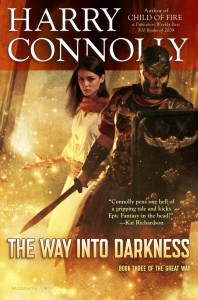 So, I wrote a series and it flopped commercially.
So, I wrote a series and it flopped commercially.
Twenty Palaces, the series was called. Del Rey was the publisher. I was a noob who got to work with their amazing editor-in-chief, Betsy Mitchell, and my covers were done by Chris McGrath. I saw my books in bookstores (even better, my in-laws saw them), plus reviews in Publishers Weekly, the whole thing.
Honestly, it was a dream come true.
… right up to the point where sales were amazingly mediocre, then became less mediocre with each book, and then finally sorry, we can’t publish any more of these books oh sorry no we will not be exercising the option on something else. It was three books and out for me.
Obviously, it was time to move on to other projects. Again. The only problem was that the other times I’d moved on was because I couldn’t get something published. Now I had; I’d even found a small fan base. It wasn’t enough to sustain Del Rey’s interest in Twenty Palaces, but it was still a whole bunch of people.
And they had my email address.
I’d discovered a new kind of rejection. Suddenly, I wasn’t operating in total obscurity any more. I certainly hadn’t become famous, but I did have readers contacting me to tell me they loved my work.
That’s an amazing thing, and I love when it happens. I love hearing from readers. But what those readers wanted was more Twenty Palaces, and I wasn’t sure I wanted to give it to them.
Each Twenty Palaces novel sold about two-thirds of what the previous book had sold. I did not want to chase a shrinking readership. Could I have made some money self-publishing? Absolutely. Would it be a viable long-term career? I wasn’t so sure.
So I wrote a post about the end of the series, and why I probably wouldn’t be returning to it for a long time, if at all. Then I sat down to figure out how I was going to create something new that my current readers would enjoy but that would also draw in new readers. I knew I was going to write an epic fantasy. I knew it was going to be full of action but not nearly as dark as the current fashion. But how was I going to keep the old readers while bringing in new?
I needed to figure out what the fans had loved and what the non-fans had hated. To do that, I did something many writers advise that we should never do: I read my reviews.
As far as I can tell, more authors avoid their reviews than read them, and this isn’t really the place to go into all the reasons why. Let’s just say they can be upsetting.
Me, I grew up in a household where we said horrible things to each other all the time. We called it “joking.” So when a reader writes something like “The villain is a child-killing monster and he’s still more likable than the protagonists,” my first instinct is to laugh aloud.
Online reviews are where you find the most honest appraisals of a book, because they’re not concerned with the author at all. They aren’t giving notes. They aren’t trying to encourage anyone. They’re speaking directly to other readers, saying “Here’s why you will love/hate this book.” So what did I learn?
Things people liked:
• Mysteries
• Monsters they’d never seen before
• Fast pace
• Flawed, active characters.
That was the list of things to keep.
Things readers didn’t like:
• Secrets
• Lack of context for the characters’ actions (when the plot question is: “What’s going on here?”)
• Too-fast pace
• Scenes where the tone veered into horror
• Violence.
Once glance told me this was not a list of things to ditch. Frankly, I like action thrillers and fight scenes, so I had no plans to leave out the violence. Not every reader can be won over, and it would be self-defeating to try.
Taking out the secrets, though? That I could do. It meant creating a story where none of the characters were in a superior position, and where no one was invested in hiding information. To me, that suggested a common enemy introduced to the setting for the first time.
Also, by taking out the secrets, I gave the characters a chance to come together and discuss their situation. That slowed the pace for readers who felt things were too frenetic, and it provided a chance to portray a larger context.
The real question is whether any of this truly matters. The Great Way turned out to be over 374K words long, and even if you don’t count individual words, it’s full of thousands of creative choices, large and small. On one hand, you have something as overarching as the concept: “a sentient curse causes the collapse of an empire.” On the other, you have choices as small as a line of dialog, or a name for a walk-on character. Amidst all those decisions, what difference does the choice between, say, mysteries and secrets make?
I think it’s a powerful difference. We’ve all had the experience of reading a wonderful book that felt just a little “off.” Maybe it was the names, or maybe it was a character who didn’t seem quite real enough. At a certain level, if almost everything is great, those few shortcomings can dampen the readers’ enthusiasm.
The trick is to understand why, and it was impossible for me to do that on my own. I had to venture out into reader-review land, where people called me a hack or thought I was ridiculous. That was where I found the answers I needed.
If you’re wondering whether this new trilogy actually works, you can always see for yourself. The story is described in greater detail here, and I have sample chapters on my blog.
Finally, I’d like to express my gratitude to everyone who takes the trouble to review a writer’s work in a thoughtful, intelligent way, even if they’re also being mean or snarky. All those opinions were valuable to me, and I could never have made this journey on my own. Thank you.
*****
BIO: Harry Connolly’s debut novel, Child Of Fire, was named to Publishers Weekly’s Best 100 Novels of 2009. For his epic fantasy series The Great Way, he turned to Kickstarter; currently, it’s the ninth-most-funded Fiction campaign ever. Book one of The Great Way, The Way Into Chaos was published in December, 2014. Book two, The Way Into Magic, was published in January, 2015. The third and final book, The Way Into Darkness, was released on February 3rd, 2015. Harry lives in Seattle with his beloved wife, beloved son, and beloved library system.
Dead Man’s Reach Update
Today I finished reading through the first pass galley proofs of Dead Man’s Reach, the fourth and (for now) final book in the Thieftaker Chronicles (which I write as D.B. Jackson). There is really nothing left for me to do in terms of production for the novel. It will be released on July 21, 2015, and I really can’t wait. It is my favorite of the Thieftaker books and it may well be the finest novel I’ve ever written.
And it also sports the best cover of the series, which is saying something because ALL of Chris McGrath‘s Thieftaker art has been magnificent. I mean, really: check this out. Amazing, right?
DragonCon, Here I Come . . . Again
This is one of those announcements that I just love to make: I am very pleased to say that I have been invited back to DragonCon as a guest (as D.B. Jackson, but I’ll be there promoting work under both my writing names). I will be speaking on panels, (perhaps) reading from my latest work, and selling books in the exhibitor’s hall in the Tairen’s Lair/Author’s Lair booth.
DragonCon is one of my favorite conventions, and each year a centerpiece of my event calendar. I am grateful to the folks at the con for having me back again this year. It offers me a chance to catch up with friends, interact with fans, and see all sorts of stuff I don’t see anywhere else — the weird, the impressive, and the unexpected. (As in the Chick-Fil-A zombie cows in this photo from a few years ago. . .)
So, I’ll be in Atlanta the weekend of September 4-7, Labor Day weekend. Hope to see many of you there. For more information about my 2015 appearances, please go to this page.
A Book Goes Out, a Book Comes In, a Book Begins
I turned in a book today. Shadow’s Blade, the newly titled, third installment in The Case Files of Justis Fearsson, is out of my hands and with my editor at Baen Books. That’s kind of exciting. I read it through this week, and though I struggled with it when I was writing the first draft, I’m very happy with how it came out.
And, of course, at pretty much the same time I turned that book in, I received the galley proofs of Dead Man’s Reach, the fourth volume in the Thieftaker Chronicles, which I write as D.B. Jackson. So I know what I’ll be working on for at least the first part of next week.
After that, things get a little murkier, and far more intriguing. It’s time for me to start a new project. I have ideas, but nothing firm. Once those proofs are done, the brainstorming and worldbuilding and plot construction begins. I don’t know yet where it all will lead, but I’m eager to find out. Stay tuned. . . .









